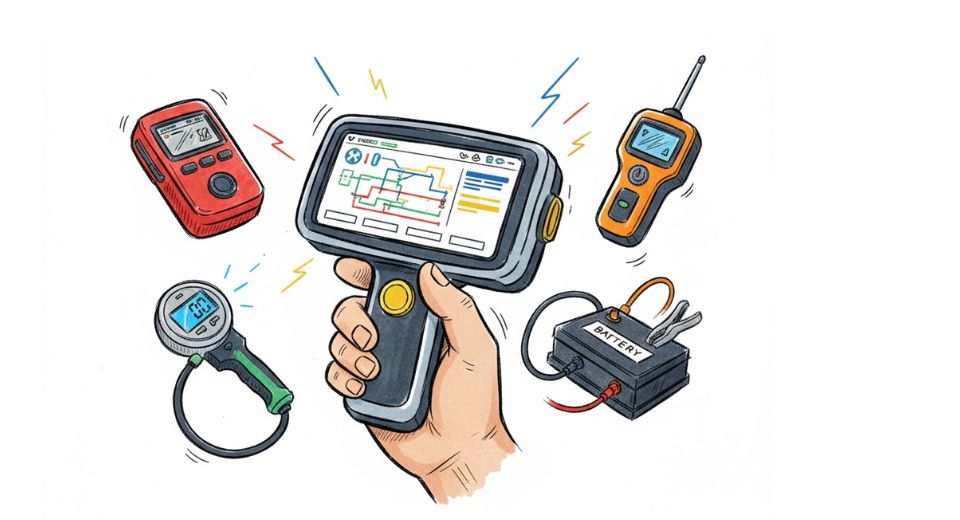
Nov 05, 2025

The global automotive diagnostic scan tools market that Metastat Insight portrays speaks of the technological pulse of contemporary mobility an unseen yet potent revolution that influences the way motor vehicles are perceived, serviced, and optimized. From consumer cars to business fleets, the need for smart diagnostics is akin to the increasing reliance on electronic systems in motor vehicles. With the industry gravitating toward increased connectivity and autonomy, the capability to sense, understand, and respond to automobile data has become crucial not just for producers and service companies but for reliability and safety in everyday transportation.
Market Context
Contemporary cars are more characterized by software and sensors than by mechanical simplicity. The turn digital has made has compounded issues in maintenance, where diagnosing defects demands something beyond standard mechanical acumen. Increased system complexity, increasing application of electric and hybrid architectures, and the need for emissions compliance have all contributed to making sophisticated diagnostic capabilities a necessity. The automotive diagnostic scan tool market reacts to this situation with systems that interpret electronic control unit code, measure performance, and identify problems with accuracy. These solutions fill the gap between advanced onboard technologies and the everyday needs of repair shops, assisting technicians in coping with varied vehicle technologies in an effective manner.
Workshops, fleet operators, and OEM service networks depend on these tools to make quick and accurate diagnoses. As cars include advanced driver assistance systems, connectivity features, and smart powertrains, precision diagnostics have become the foundation of aftersales efficiency and customer satisfaction. The market's role goes beyond fault detection it supports the reliability and consistency of performance that today's connected mobility ecosystem requires.
How It Works / Why It's Valuable
Automotive scan tools speak directly to a vehicle's electronic systems, reading fault codes, live data monitoring, and performing system tests. By interpreting intricate digital signals as concrete actions, such tools facilitate effective repair and maintenance. They identify trouble early, limiting downtime and avoiding greater mechanical or electrical problems.
These systems are versatile enough to cover various applications independent garages to OEM-authorized repair shops and large fleets. Their multi-make and multi-model compatibility adds to global market usability. Advanced systems combine wireless communication, cloud reporting, and software updates, keeping diagnostic information current and on hand.
Performance benefits are in their capacity to reduce service times while enhancing diagnostic accuracy. These efficiencies have a direct benefit to workshops of lower operating costs and better uptime for fleet owners. The benefit is not confined to repair these tools help bring about safer roads and better transportation efficiency by keeping vehicles at peak performance levels.
Growth Story / Technological Evolution
The history of the automotive diagnostic scan tools market follows the gradual digitalization of vehicles. It started with basic code readers for engine faults and moved to becoming multifunctional systems in a position to analyze sophisticated vehicle networks. The sector has grown up with onboard computing, connectivity, and sensor integration advancements.
Early usage was mostly limited to professional workshops, but gradually availability increased with the help of user-friendly interfaces and mobile apps. The union of software-based intelligence and cloud connectivity was a major milestone, enabling real-time sharing of data and remote diagnosis. Continuous improvement in hardware design, quicker processors, and user-friendly interfaces have consolidated the role of these tools as an integral part of contemporary automotive service infrastructure.
Regional or Global Trends
Adoption trends mirror local variations in car technology, regulation requirements, and aftersales networks. Mature automotive markets have heavy adoption because they have a large number of electric and connected cars that need sophisticated diagnostic functions. Markets with high concentrations of specialized repair shops have widespread usage of premium tools integrated into manufacturer platforms.
Emerging markets are moving into a period of aggressive growth, fueled by the increasing number of vehicles with electronic control systems. With service networks in these markets developing, demand for affordable yet powerful diagnostic equipment is further accelerating. The intersection of expanding vehicle ownership and greater emphasis on operational efficiency is building well for future growth.
Challenges and Opportunities
The path forward includes both obstacles and possibilities. Compatibility across diverse vehicle platforms and software ecosystems remains a core challenge. Regular updates are essential to maintain coverage for new models, often requiring ongoing investment in software development. Cost constraints can limit access for smaller workshops, while variations in regional regulations can complicate standardization efforts.
But there are big opportunities. Developments in artificial intelligence and machine learning are improving predictive maintenance, allowing diagnostic systems to predict problems before they arise. Integration with telematics and connected vehicle platforms is providing new business models, marrying diagnostics directly with data analytics and fleet management solutions. Growth into new automotive technologies electric mobility and autonomous systems offers new avenues for innovation and collaboration.
Why It Matters Now
The increasing emphasis on safety, sustainability, and digital efficiency puts diagnostics at the heart of the automotive revolution. Reliable and data-driven maintenance leads to lowered emissions, longer vehicle lifecycles, and more efficient energy consumption. With smarter and interconnected transportation networks, the application of diagnostic tools goes beyond repair it enables the whole lifecycle of intelligent mobility.
The global automotive diagnostic scan tools market by Metastat Insight captures this evolution toward data-driven service ecosystems that characterize next-generation mobility. It is not just a set of tools it is the convergence of engineering, software, and connectivity that is creating the next generation of transportation. As cars advance further towards becoming cognitive systems on wheels, diagnostics is an essential driver of efficiency, security, and innovation in the world of autos.
Drop us an email at:
Call us on:
+1 214 613 5758
+91 73850 57479